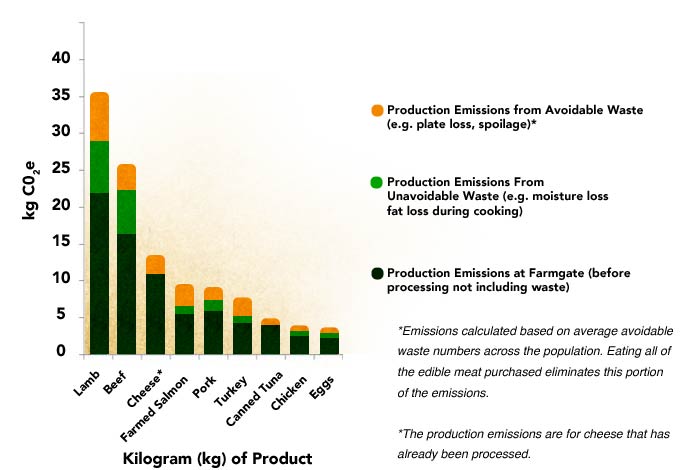Jul 18 - Environmental Working Group Study Shows Impacts of Meat Consumption
The study, released by the nonprofit Environmental Working Group, charts the best and worst foods for consumption by the amount of greenhouse gas emissions released during the  products life cycle. Unlike many of the previous studies on this issue, this report takes a lifecycle approach and includes emissions generated during the retail, processing, transport, cooking, and disposal of the product.
products life cycle. Unlike many of the previous studies on this issue, this report takes a lifecycle approach and includes emissions generated during the retail, processing, transport, cooking, and disposal of the product.
Among the findings, the study shows that food waste is a significant contributor to the climate impact of the meat we consume. The study showed that nearly 20% of all meat sold is disposed of, ultimately resulting in a waste of energy and resources used in producing the meat and emissions from the disposal of the material. By reducing our consumption of these high emission products, we can eliminate the wasteful environmental and climate impacts that incur during their production. According to EWG, "reducing waste and buying only as much as you can eat is therefore the easiest way to reduce greenhouse gas and other environmental impacts of food."
The top five emission contributors according to the study were, lamb, beef, cheese, pork, and farmed salmon.
In California specifically, one of our largest sources of meat emissions comes from dairy production, which is the largest in the nation with approximately 1.5 million cows, resulting in greenhouse gas emissions, as well as air and water pollution.
Read the full study by the Environmental Working Group or get a handy pocket guide for making a $5 contribution.
